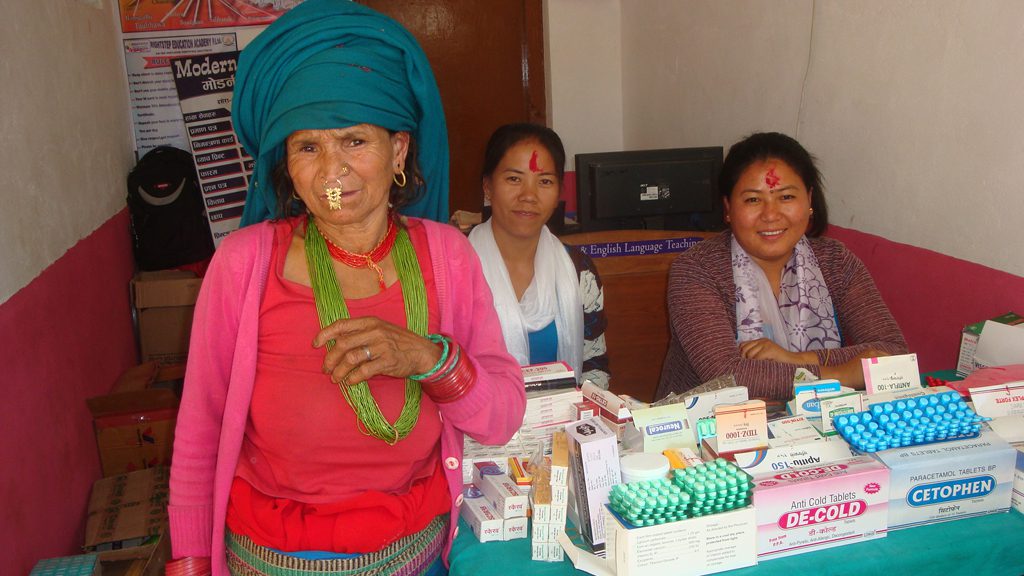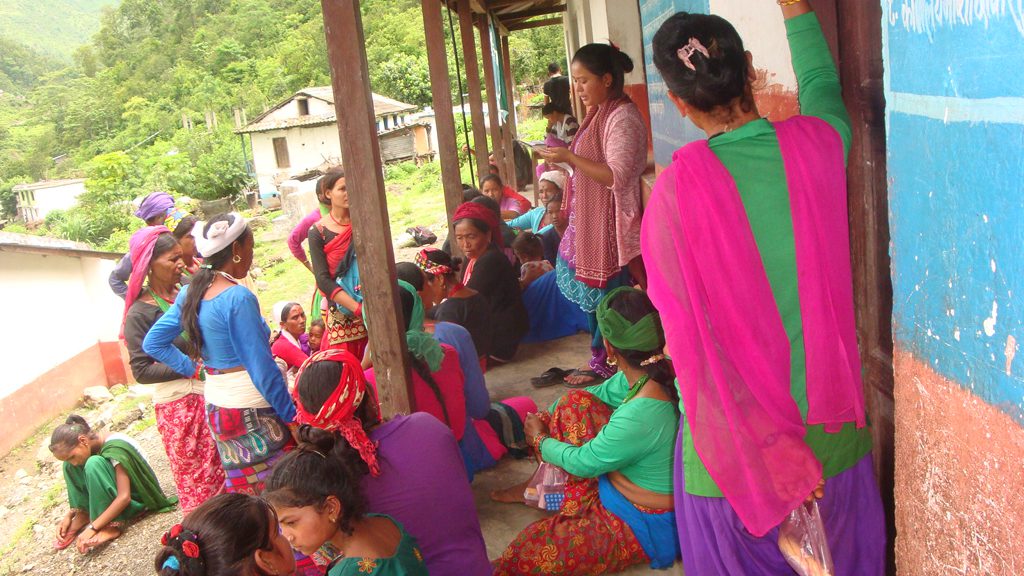Navjyoti Mobile Health Center, Surkhet conducts 24 Mobile Health Clinics every month in 3 districts of W. Nepal at present. These clinics are held in very remote and interior villages distance away from the Center where no health facilities are available.

Surkhet District 11 Clinics/Month
Dilakh District 3 Clinics/Month
Jajarkot District 10 Clinics/Month
TOTAL 24 Clinics/Month
Mobile Health Team consists of:
Health coordinator 1
Community Medical Assistant(CMA) 5
Driver 1
Helper 1
TOTAL 8
Clinics are started from the 1st day of the Nepali month. A same date is fixed for every month for each village. People are well aware of the dates and patients gather in good number. They have great faith in our medicines and treatment and many get relief from their ailments especially certain skin diseases. Medicines are given free of costs but Rs.20-30- are charged from each patients as registration fee. Once the clinics are completed , the rest of the remaining days of the month is spend in recording, reporting, documentation, maintaining the stock balance of the medicines, cleaning etc.etc. We are accountable to the 3 districts health offices for all our health activities. Our mobile health expenses are met by a faithful and compassionate American donor named Chris Fussner. The Money transactions are carried out by the Nepal Jesuit Society and we are accountable to NJS for the money we receive through them.

Activities of the year:
- Monthly Mobile Health Clinics in 24 places in 3 districts.
- Monthly free health check up and medicines for the senior citizens in 2 old age homes in Surkhet.
- Health awareness classes to the patients who come to the clinics where ever possible.
- Health classes for the women trainees and Health workers of Navjyoti Center by the mobile health staff.
- One Health camp was conducted in February 2018 in which 300 patients were examined and given medicines.
- Another health camp was conducted in Girighat village where almost 120 families are still living in the make shift huts after 2014 flood. 87 patients where examined and given medicines.
- Our team spent one day in our center making herbal massage oil which is being distributed for the needed cases and which the patients find very effective in arthritic pain, muscle pain etc.
- 7 mentally ill patients and 4 other special cases are provided medical assistance free of costs according to the order of the doctor in a monthly basis.
- Some food materials are distributed to the very poor patients and the needy in a monthly basis through the generous support of a donor.
- Reaching out to the poor and needy as per need.
- First Aid boxes for 12 Government Schools are provided with regular monitoring.
- Proper recording and reporting of the activities of the center.
- Coordinating with 3 district hospital(Sukhet,Dielekh, Jajarkot)under which we carry out our health activities.
- Regular monthly meeting with the staff.
- We reach out to the people of Grighat and anothe rplace in Surkhet who are staying in the huts by distribute the tarpaulin which was provided by St. Mary’s School Kathmandu.
Effect of our health activities in systemic change
- Health awareness is slowly coming among the rural people due to regular health teaching such as personal and environmental sanitation, ill effect of alcohol, drugs, smoking, illegal abortion, which craft, and awareness on various diseases and their early treatment.
- Chronic cases like high Blood Pressure, Asthma, skin diseases, Ear infections etc. are getting better with regular medication and monitoring.
- Lot of poor patients of all kinds of health problems are taken care of in various remote villages where the doctors don’t reach thus financial burden of medicines for them is reduced.

